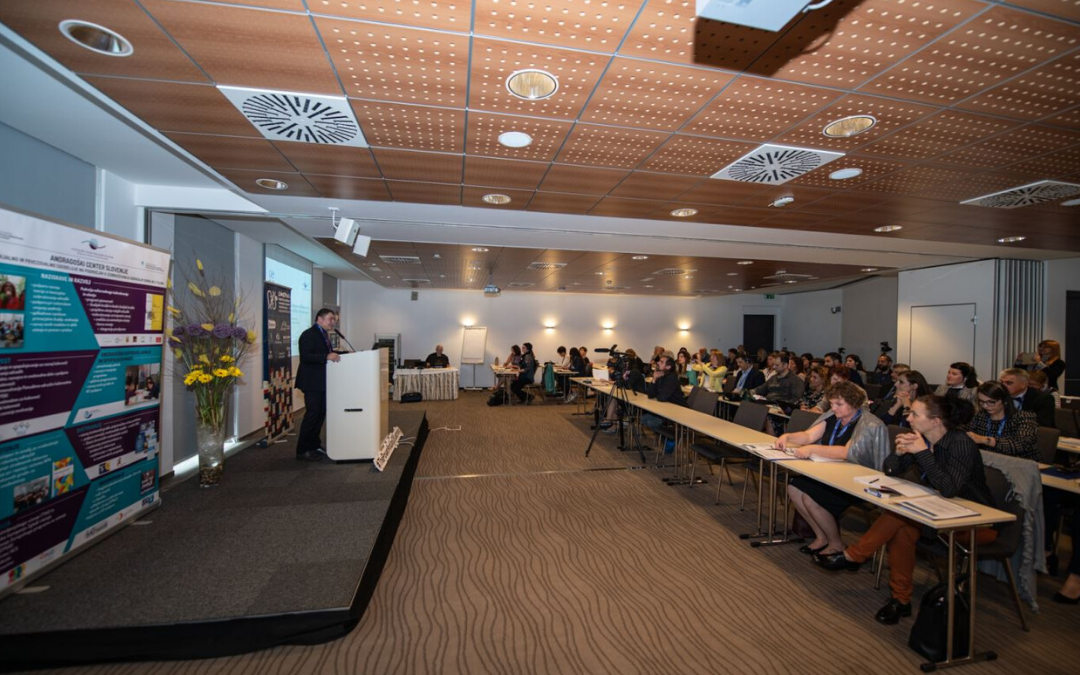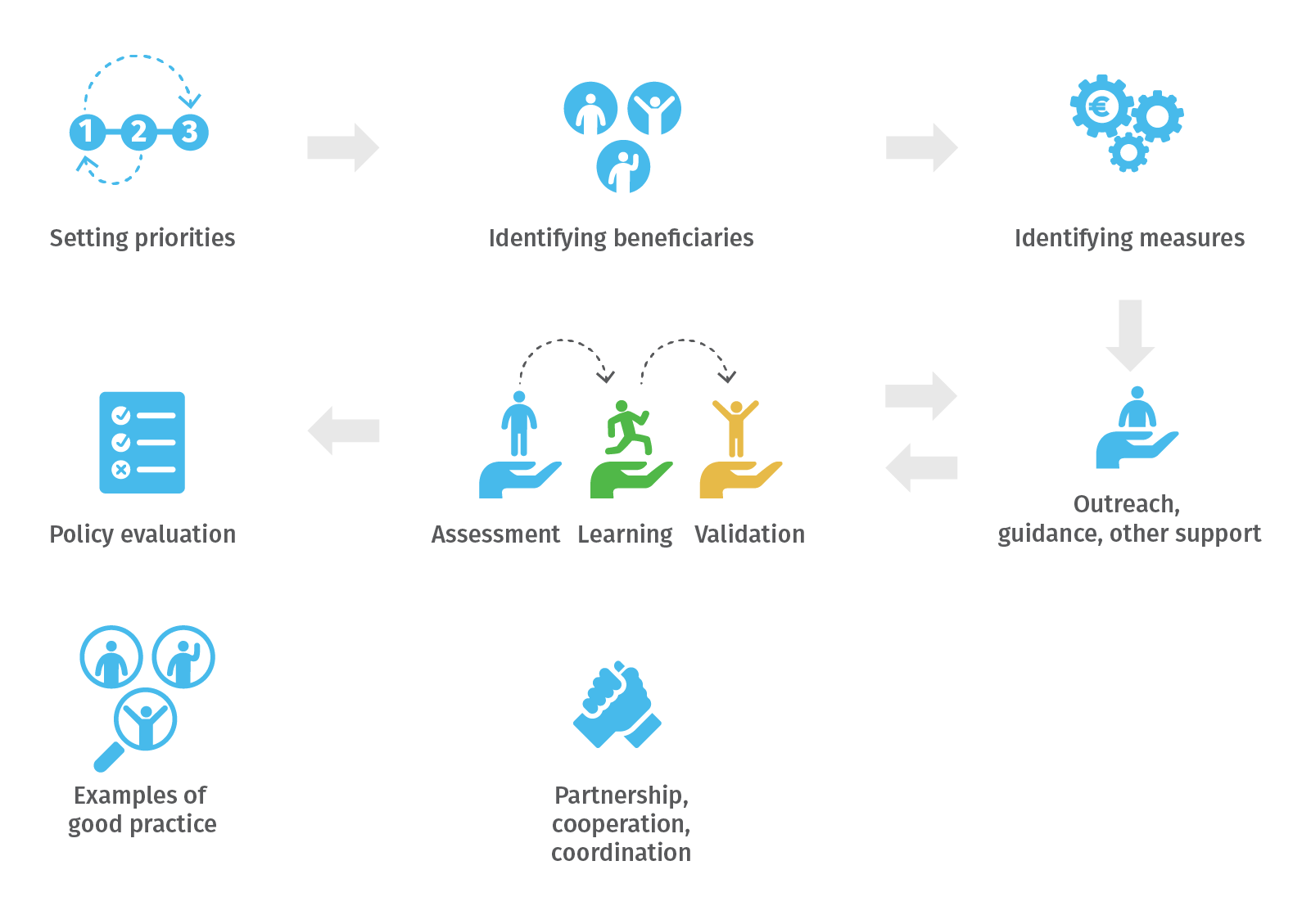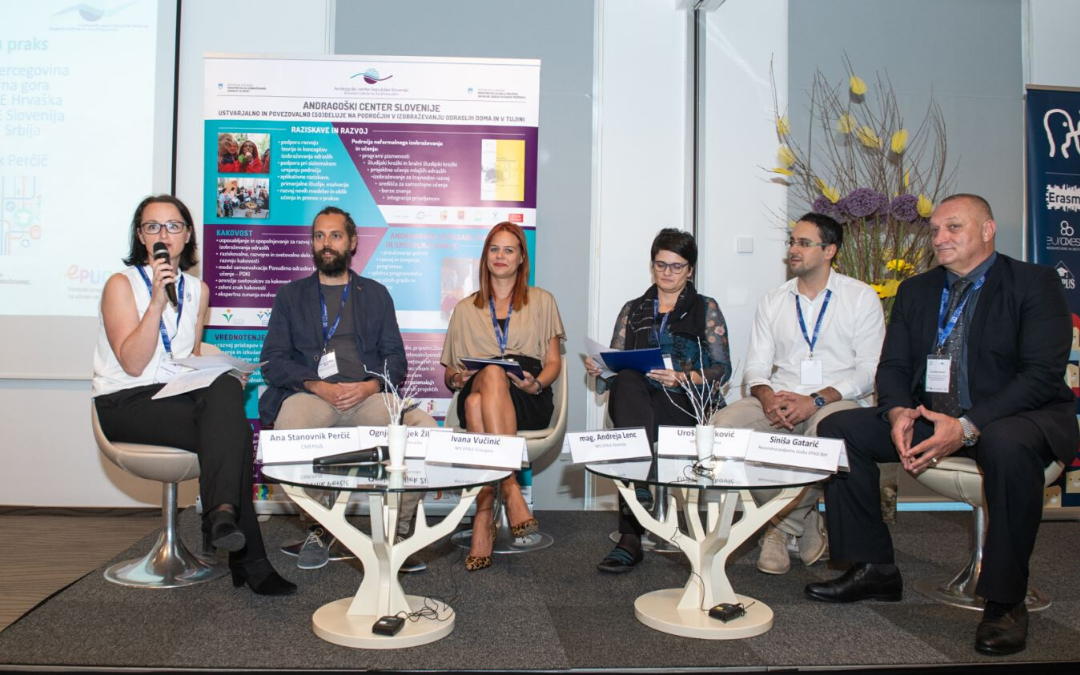In our belief every tool must always be tightly associated with content, which leads us – the countries of SE Europe (Bosnia and Herzegovina, Montenegro, Croatia, Slovenia and Serbia) when organising regular annual meetings of our EPALE support services and other stakeholders. This year’s 4th Regional EPALE Conference took place on 24 and 25 September in Laško and was jointly organised by the associates of The CMEPIUS and SIAE. We followed the Croatia conference in Makarska (2016), the Bosnia and Herzegovina conference in Banja Luka (2017) and the Montenegro conference (2018) in Budva. In all three cases, we upscaled the consideration of the tool, the EPALE platform, with current topics in education. In the first case, this was the management of adult education organisations with an emphasis on the use of ICT tools in the educational process. Quality of AE was the focus of the second iteration, while research practice was at the core of the third conference. The latter represented an opportunity to show the region the results of the adult skills measurement in Slovenia (PIAAC survey). All meetings, including this year’s, involved associating EPALE with the process for the realisation of the EAAL as the process addresses current topics and promotes progress in EU Member States.
The focus this time was on the implementation of the EU Council Recommendation on Upskilling Pathways
The Recommendation Upskilling Pathways—new opportunities for adults was created to a large extent in light of the unpleasant results of the mentioned PIAAC survey. The results from most of the European countries, including Slovenia, warned about the low level of adult skills. The implementation of the Upskilling Pathways Recommendation is to enable adults with a low level of education and inadequate skills with suitable support and three steps (assessment, learning and recognition) to achieve a minimum level of literacy and numeracy as well as digital skills or acquire a broader range of competences. If possible, they should also attain a higher level of education or its equivalent (levels 3 and 4 of the European Qualification Framework).
We hinted to the guests of the regional EPALE conference that we wish them to tell us about the status of the document in their respective countries and how they tackle its implementation as well as about their plans for the future. On the other hand, we wanted to compare the situation in our countries with the findings of the European Commission Report, which is based on the information of the Member States on (eventual) measures introduced at the national level.
The conference demonstrated that Slovenia, Montenegro, Croatia and Serbia fall into the group of EU Member States, in which the Recommendation on Upskilling Pathways is closely tied to the existing national strategies (in Slovenia, the AEMP Resolution 2013–2020), regulations and measures that are (for the most part) realised through projects that are co-financed from the ESF. Bosnia and Herzegovina has not yet tackled this challenge, as their AE system is highly complicated.
Upskilling Pathways in Slovenia
The Slovenian approach was presented by Katja Dovžak, MSc from the MESS, who illustrated the broad range of ESF projects, and called attention to the fact that measures take into account the PIAAC survey results. The provisions of the new Adult Education Act and other legal bases, and demographic projections, objectives of the Active Ageing Strategy as well as related strategic documents of our country are also important grounds. A telling example from Slovenian practice was presented by Bojan Hajdinjak, MSc from the Cene Štupar AEC. I presented a new tool—the Upskilling Pathways e-portal which has been created within the scope of the Slovenian EAAL implementation process.
The mentioned e-portal is an online tool that provides the following:
- current information about the AE policy at the European and national levels which are especially interesting in a time when the policy for the new decade is still being developed;
- presentations of European and national data that reflect individual components of the Upskilling Pathways process (see the side menu options on the UP website);
- overview of existing Slovenian measures (ESF projects) collected in a single place;
- dissemination of good practice examples resulting from the aforementioned measures in order to create a database of qualitative and quantitative results and effects for awareness-raising purposes at home and abroad;
- information on what is available to this target group of adults (guidance, suitable study offer and other support activities);
- basic information and examples for Slovenia’s reporting on the realisation of the Upskilling Pathways Recommendation in 2021 (both – introduced measures that were the subject of the 2018 report, and the effects on individual stakeholders).
Interesting Approach to Informing Users about EPALE
A lot of time at the conference was also devoted to the EPALE platform. The round table, moderated by the representative of the CMEPIUS Ana Stanovnik Perčič, saw the representatives of NSS from the region report on their most successful approaches to the implementation of EPALE. They attract users mainly from the ranks of adult educators as they can find opportunities for their professional development on the platform. Others are also welcome: students, professors who can use materials from the platform for their teaching process and also contribute their own products, and policy-makers as well as others. The EPALE ambassadors help spread the word about EPALE in certain countries, while the expert group plays an important role in this regard in Slovenia. The added value of the platform is also the option of searching for partners for joint Erasmus+ projects. In Slovenia, the NSS carries out various training courses for the preparation of interesting and attractive articles that are published on the platform. In short, all of us in the region contribute to the development and greater recognition of adult education through various EPALE activities.
For That Proverbial Cherry on Top…
We concluded the conference with two practical training sessions. The lecturer Lea Pisani introduced the secrets of image design for various business opportunities. A convincing talk and performance with elements of intercultural dialogue was presented to us by Dr Zdravko Zupančič. Both skills will come in handy, for sure.
The content presented at the conference, photos and videos are all available on the event website. You can read more about the conference in two blogs—the first mostly focuses on EPALE and the other on Upskilling Pathways (in Slovenian).
Zvonka Pangerc Pahernik, MSc (zvonka.pangerc@acs.si), SIAE




